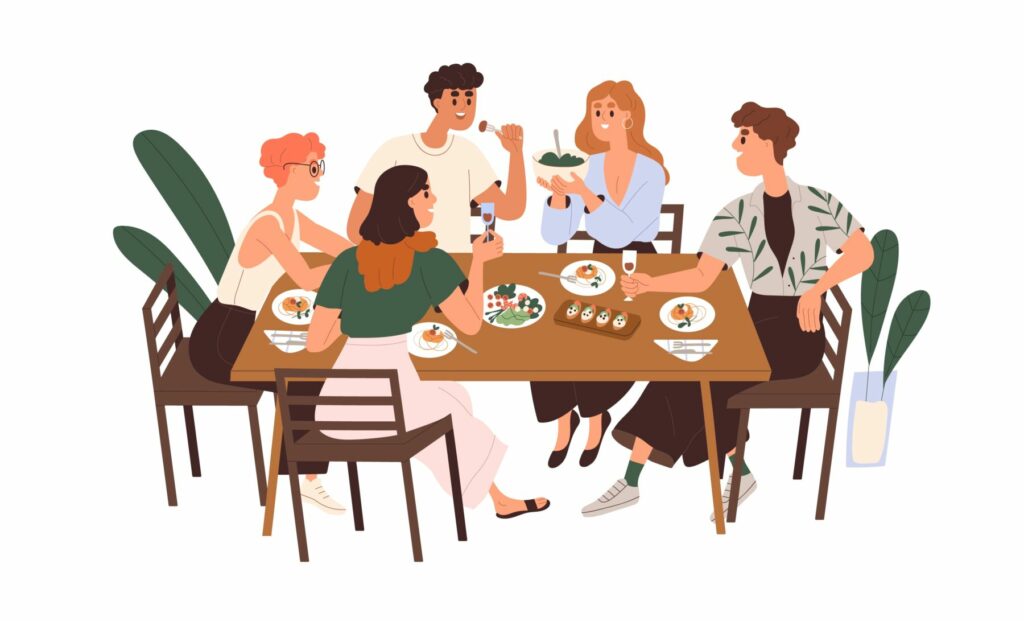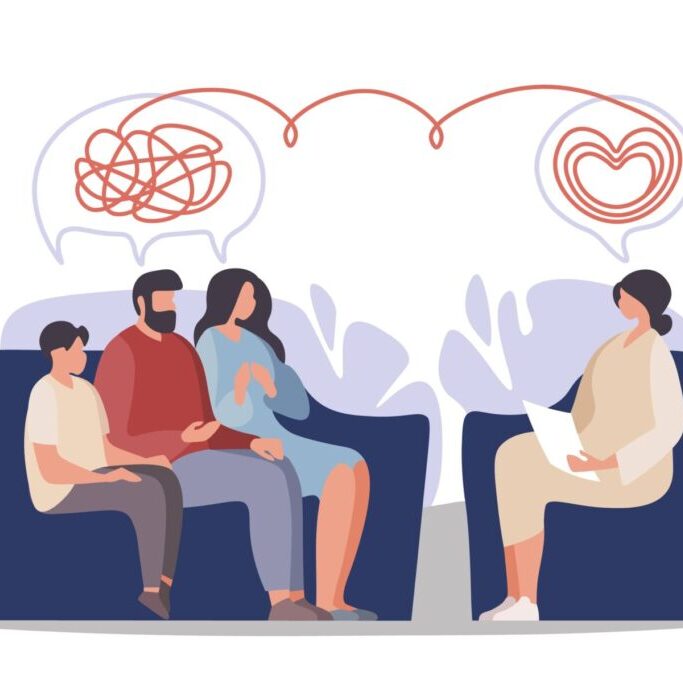How to Navigate the Awkward Family Gatherings When LGBTQ+

Social gatherings can be a source of immense joy and connection, offering opportunities to celebrate milestones, holidays, and simply the pleasure of being together. Yet, for many in the queer and LGBTQ+ community, these occasions also present unique challenges, especially for individuals navigating the complexities of their queer identity in potentially unsupportive environments.
Here, we hope to provide LGBTQ+ individuals with thoughtful advice and strategies to navigate these social landscapes with resilience, self-compassion, and confidence.
Our objective is to create a guide that not only acknowledges the nuanced challenges faced by LGBTQ+ individuals at family gatherings and social events but also offers practical steps and emotional support to navigate these situations effectively.
By fostering an understanding of how to prepare for, engage in, and recover from social gatherings, we aim to empower LGBTQ+ individuals to experience these events as spaces of joy and affirmation.
LGBTQ Therapists Advice on Preparing for Family Gatherings and Social Events
Understanding the Event – Before attending any gathering, take a moment to understand its specifics: the occasion, who will be there, and what dynamics you might expect. This understanding can help in preparing mentally and emotionally, particularly for those who might find themselves in awkward family gatherings.
LGBTQ therapists call this “coping ahead” and it’s a common skill taught in DBT therapy. Reflecting on personal boundaries and potential triggers can equip you with strategies to maintain your well-being throughout the event.
Planning an Escape Route – The importance of having an escape route cannot be overstated. Whether it’s a physical exit strategy or an emotional one, knowing how you can step away can provide a sense of security. This doesn’t necessarily mean leaving at the first sign of discomfort, but rather having the option should situations become overwhelming.
Identifying Support and Advocacy – Pinpointing supportive allies, whether among attendees or someone you can text or call during the event, can make a significant difference. LGBTQ therapists often emphasize the value of having a safety net, which might include scheduling a session close to the date of the gathering to debrief and process the experience.
Clarifying Personal Goals – What do you wish to get out of attending the event? Identifying your goals can help manage expectations and focus on what’s truly important to you, whether it’s connecting with certain individuals, enjoying the celebration, or simply proving to yourself that you can navigate challenging social situations. Sometimes goals are about prioritizing the relationships or your self-esteem, which can be a complex decision and one you might consider addressing with an LGBTQ therapist.
Self-Affirmation Strategies – In environments where you may feel marginalized or misunderstood, self-affirmation becomes crucial. Whether through internal mantras, discreet reminders on your phone, or even wearing something that makes you feel confident, these strategies can help ground you in your worth and identity. LGBTQ therapy can also play a significant role in developing these practices, offering a space to explore and affirm your identity in the face of external challenges.
Safety vs. Authenticity in Social Situations – Navigating the delicate balance between safety and authenticity is a personal journey that varies greatly among individuals. It’s essential to recognize that prioritizing safety in one situation doesn’t mean sacrificing authenticity altogether.
Deciding when to share and when to shield aspects of your queer identity can be made easier with a decision-making framework focused on personal well-being and the specific context of the gathering. You have the power over your disclosures or lack thereof and that is a great thing!
Strategies for Managing Emotional Well-being from LGBT Therapy
Dealing with Self-Judgment – It’s not uncommon to feel guilty or inadequate for choosing safety over confrontation. Developing strategies to combat these feelings, possibly with the help of LGBTQ therapists, can be incredibly beneficial. Remember, choosing not to engage in every battle doesn’t diminish your strength or authenticity.
Handling Discomfort for Being Yourself – Affirming one’s right to exist and express oneself authentically is paramount. This can involve internal affirmations, seeking out spaces where your queer or LGBT identity is celebrated, and using strategic self-care to navigate moments of discomfort. These can include mindfulness techniques, breathing, affirming mantras, and many others. Remember, being true to yourself is an act of bravery, especially in spaces that may not fully understand or accept you.
Strategic Self-Care Planning – Choosing your battles and knowing when to express yourself can be a critical aspect of self-care. However, this is much easier said than done. LGBTQ therapy can offer insights into managing these decisions, helping to identify when and how to engage in a way that preserves your emotional well-being.
Enhancing Coping Mechanisms – Building resilience and developing emotional regulation techniques are key to navigating the emotional landscape of social gatherings. From mindfulness exercises to grounding techniques, there are various ways to manage intense emotions in real time, ensuring you can engage in social events more fully and with greater ease.
Consider “resourcing” (a practice often used by LGBTQ therapists) in which you consider coping mechanisms you already use. You likely have some adaptive and healthy ways of coping, consider how they can be used in awkward family gatherings or other uncomfortable social situations.
Advocating for Inclusivity in Social Spaces
The role of allies in creating inclusive and affirming spaces cannot be overstated. Whether you’re an ally looking to support queer and LGBTQ+ individuals, a business owner, or an event organizer seeking to make your gatherings more welcoming, small actions can make a big difference.
From explicitly inclusive invitations to having open conversations about diversity and acceptance, these efforts contribute significantly to a more inclusive society. Queer and LGBT people often became aware of allies quickly. Use this skill; it truly makes potentially awkward family gatherings and social events more successful!
Navigating social spaces as a queer or LGBTQ+ individual, especially when new to your identity or facing other mental health challenges, requires courage, preparation, and support. By understanding the event, planning for safety, identifying support, and employing strategies for emotional well-being and coping, individuals can navigate these spaces with greater confidence and authenticity.
Let this article serve as a reminder of the strength and resilience within the LGBTQ+ community and the importance of seeking out support when needed.
Whether through LGBTQ therapy, supportive allies, or self-affirmation practices, there is a wealth of resources available to help navigate the complexities of social gatherings. Remember, you are not alone in this journey, and there is power in our shared experiences and solidarity.
This blog is made for informational and educational purposes only. It is not medical advice. The information in this blog is not intended to (1) replace a one-on-one relationship with a qualified licensed health care provider, (2) create or establish a provider-patient relationship, or (3) create a duty for us to follow up with you.



